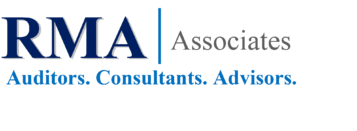BY
The digital age of accounting software is still in its infancy yet the potential of blockchain technology could significantly upend long standing accounting systems. Historically, the job of verifying the accuracy of accounting information has fallen on auditors, taxing authorities, banks and other financial institutions. However, this system has been costly and has a heavy reliance on agents to verify financial information. Blockchain offers the potential to significantly reduce the cost of financial verification while disrupting traditional accounting and finance industries.
A Brief History of Accounting and Money
Modern financial accounting is based on the double entry system which was revolutionized in the renaissance era. This system ensured merchants could trust their own books but did not solve the problem of financial verification for outside parties.
To alleviate this problem, business owners and outside parties relied on agents and intermediaries like auditors, financial institutions, courts and tax authorities. However, this system is costly and does not guarantee the complete accuracy of financial information.
Historically, whenever there is a transfer of money or property there exist a heavy reliance on intermediaries to verify the accuracy of exchanges. For example, when you make an online purchase you are not sending money directly to the seller but are instead informing your bank to send money to the seller’s bank.
In essence, the bank is holding a centralized ledger of accounts and updates them when a transaction occurs.
Blockchain is an alternative to centralized storage of financial information and makes it possible to conduct digital transactions without a third party intermediary.
What is Blockchain?
Blockchain is a decentralized system that allows the sharing of a digital ledger across a network of computers. Instead of one specific entity being in charge of updating the ledger, i.e. a bank, the obligation of ledger verification falls on the blockchain community as a whole.
Blockchain should not be mistaken with Bitcoin; Bitcoin is to blockchain as email is to the internet. Blockchain however is the foundation of Bitcoin and allows for the flow of the digital currency.
Think of it this way, since the digital ledger (whether it be patient records, financial information or digital currency) is shared across the network and must agree to each corresponding copy, it is almost impossible to change or manipulate records in a blockchain.
Blockchain and Accounting
Blockcahin technology could revolutionize the accounting industry. Instead of keeping a ledger based on transaction receipts, companies can write their transactions directly into the joint ledger. Since all transactions are distributed and cryptographically sealed, manipulating, falsifying or destroying them would be practically impossible.
Using hash strings, financial information is given a digital fingerprint which allows for an immutably time-stamped transaction that can be verified automatically with audit software.
CPA firms like Deloitte are already venturing into blockchain as a way to automatize many auditing functions and thus significantly reduce the time and cost of audit services.
Blockchain ensures every transaction is recorded and verified, and therefore guaranteeing the integrity of financial records. This means the vast majority of auditing services can be eliminated. Large audit jobs with numerous staff members could be cut down to a handful of individuals whose only task is ensuring the financial statements meet regulatory standards.
While impressive, blockchain has the potential to greatly reduce or even eliminate the need for auditing services, both internal and external, to verify the integrity of financial information.
Conclusion
Even though blockchain is far away from mainstream use, it’s potential disruption on the accounting industry cannot be overlooked. Firms who early adopt practices that account for these potential disruptions will be better off in the long run.
Think of blockchain technology that allows for smart contracts in which invoices pay themselves after ensuring receipt of goods and sufficient funds available; all while keeping an immutable ledger of these transactions. Although hard to believe, this is all possible with the power of blockchain.
Article via TheDailyCPA.com




No responses yet